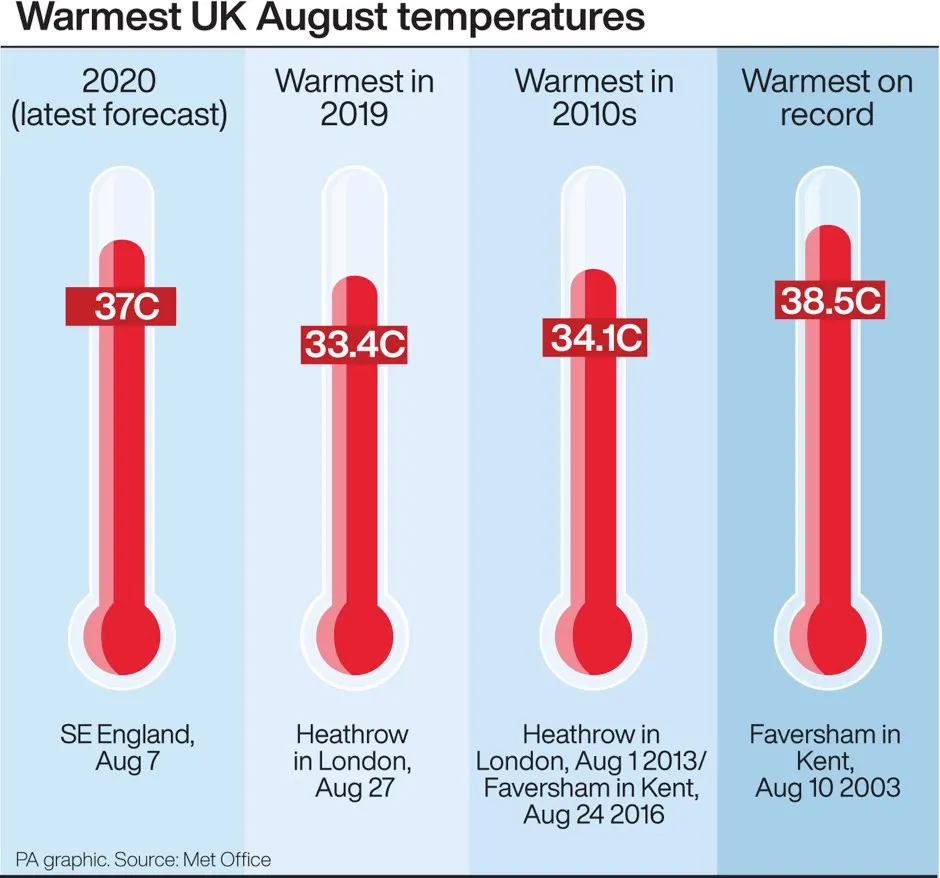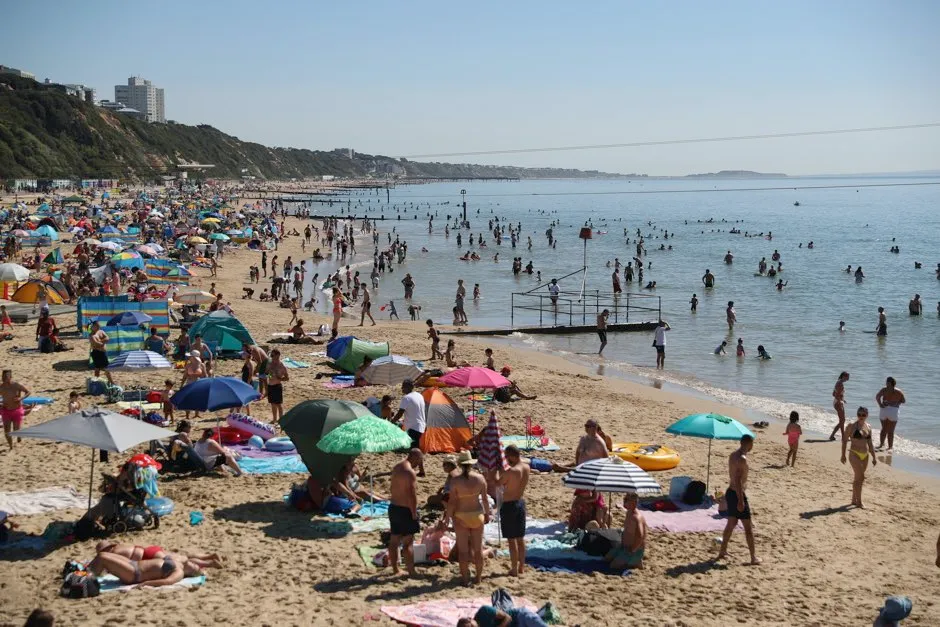Having record-breaking summers will become a certainty due to climate change, experts have warned.
Just a week after Britain recorded the third warmest day on record on 31 July, with 37.8°C recorded in Heathrow, last Friday 7 August saw temperatures rise to 36°C in south east England, the hottest recorded August temperature in 17 years.
Dr Michael Byrne, lecturer in earth and environmental sciences at the University of St Andrews, warned that two near-record temperatures so closely spaced is “unusual”.
“But it’s not surprising given climate change is happening and accelerating,” he told the PA news agency.
“Breaking temperature records year-on-year will absolutely keep happening unless we take drastic action against climate change, that’s a certainty.”
Read more about climate change:
- 20 per cent chance of missing Paris Agreement climate target in next five years
- Arctic heatwave temperatures reach possible all-time high
- Siberia heatwave ‘effectively impossible’ without human activity
The Met Office revealed in its latest report covering the climate of the UK, published on 31 July, that the most recent decade has been on average 0.9°C warmer than the period between 1961-1990, with 2019 being 1.1°C above the 1961-1990 average.
It found that the earth’s surface temperature has risen by 1°C since the pre-industrial period between 1850-1900.
Mr Byrne said that while 1°C may not sound dramatic, there is a huge amount of variation region-to-region.
“The land region has warmed substantially higher than 1°C,” he said.
“We think in 50-100 years we’ll see 2-3°C of surface warming, with more over land and over the Arctic, which will present huge challenges and implications for people’s health.
“Parts of the Middle East won’t be habitable, which I find quite terrifying.”

According to the Met Office, all of the UK’s 10 warmest years have occurred since 2002, with last year seeing the hottest day on record at 38.7°C in Cambridge Botanic Garden on 25 July.
Mr Byrne cited the 2003 heatwave which has been linked to nearly 15,000 deaths, most among the elderly, in France and which caused 2,000 excess deaths in the UK.
“For quite a long time we saw climate change coming, but it seemed an abstract concept,” Mr Bryne said.
“The last five years has hit home for me that it’s happening now, it can’t be ignored anymore.”

Ilan Kelman, professor of disasters and health at University College London, warned the UK’s rising temperatures will make it “highly dangerous” for people to be outside if more isn’t done to curtail climate change.
He said: “These temperatures are unfortunately in line with the expectations for heat under climate change, which is one of the most concerning health impacts.
“Without stopping human-caused climate change, these levels of summer heat and humidity will become regular, making it highly dangerous for us to be outdoors and even indoors without continual cooling.
“Air pollution can also worsen under heat with its knock-on health effects, such as for cancer and asthma.”
Reader Q&A: Do we really know what climate change will do to our planet?
Asked by: Jennifer Cowsill, via email
There is no doubt that greenhouse gas emissions caused by humans are changing our climate, resulting in a progressive rise in global average temperatures. The scientific consensus on this is comparable to the scientific consensus that smoking causes lung cancer.
Our climate is a hugely intricate system of interlinking processes, so forecasting exactly how this temperature increase will play out across the globe is a complex task. Scientists base their predictions on powerful computer models that combine our understanding of climatic processes with past climate data.
Many large-scale trends can now be calculated with a high degree of certainty: for instance, warmer temperatures will cause seawater to expand and glaciers to melt, resulting in higher sea levels and flooding. More localised predictions are often subject to greater uncertainty.
Read more:
